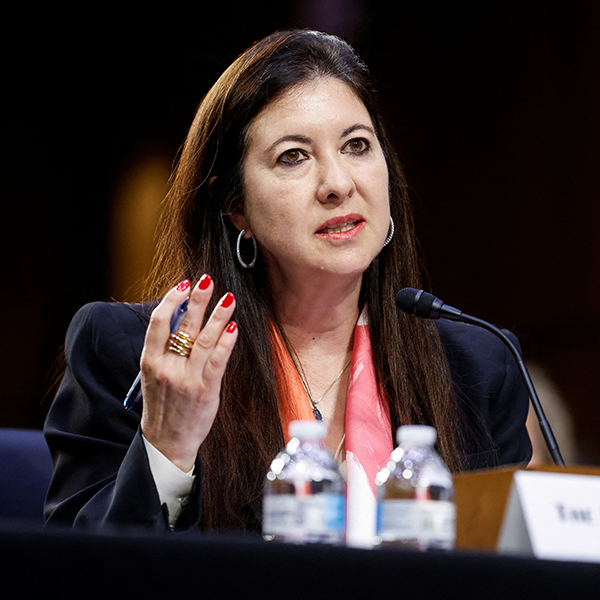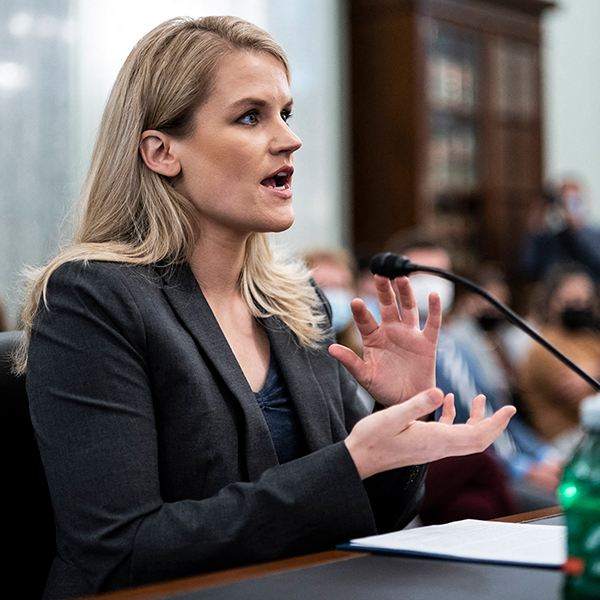Roya Rahmani, BSc’04, is patient when asked, as she has been dozens of times, “What is it like to be the first woman ambassador from Afghanistan to the United States?” “It is an honour and a privilege,” she says simply.
To know Roya Rahmani is to know that “first” is just something she does and has done since she was a youngster. At the age of five, she was questioning women’s roles in her Afghan family’s household. As a young teenager in a refugee camp in Pakistan where education was unavailable to women (like millions of Afghans, her family fled the civil war in their native country), she figured out how to study English and get a TOEFL certificate.
When her loving but traditional father did not want her to study abroad alone, she insisted her brother also apply to McGill so he could accompany her. She has lived a life of breaking barriers, finessing what others think is impossible and elegantly and strategically defying convention. Ambassador Rahmani brings all these qualities to her complex job. “I am a believer that if you want change you have to be the agent of it. That is what brought me to this place.”
En route to “this place,” as she describes her new assignment in Washington, was McGill.
“I wanted to go to one of the best universities – so I made my way to McGill.” She remembers the four flights and 40-hour journey without sleep from Peshawar to Karachi, then London to Toronto, and finally Montreal. She was exhausted and mesmerized. “It was a beautiful day. And there was the fabulous, magnificent McGill campus!” She saw young men and women, not only together, but sitting or lying down on the grass.
Fatigue trumped propriety. She lay down and, exhausted from the trip, fell asleep on the lawn.
Her years in Montreal weren’t always easy. There was the grappling with the French language, long winters, cultural differences and missing her family. But McGill provided the intellectual stimulation she had been seeking.
She chose software engineering, an unlikely and “magical” subject for a woman at the time. The very fact that women were usually discouraged from the field, not surprisingly, was one of the reasons she chose it.
“I was always drawn to things that would be a bit unusual.” She has praise for her engineering professors, but points to an elective course in sociology as having had a particularly powerful influence on her. The teacher, Kimberley Ducey, PhD’13, told her students not to judge events by what they observed on the surface. Look behind each event to discover the reasons that caused it, they were counselled. “She said, ‘You have to think open-mindedly, not rigidly. Use your imagination!’”
After McGill, Rahmani took up a position with a Canadian NGO dedicated to promoting education for women in Afghanistan. The same determination that got her to McGill fuelled her belief that, although the situation for women in her home country was profoundly difficult, solutions were possible. She just had to, as her former teacher had said, think open-mindedly.
Committed to public service, she continued working on human rights issues for international NGOs before heading for Columbia University for a graduate degree in public administration and international law. Rahmani says it became clear to her that it was time to work in the government of her native country. “I realized if I wanted to make fundamental changes, I had to bring those changes from within.”
She has pushed for some of those fundamental changes from positions in the education and foreign affairs ministries, and as Afghanistan’s first ambassador to Indonesia and the Association of Southeast Asian Nations.
And now she finds herself playing a key role at a crucial moment in her country’s history. As Afghanistan’s ambassador to the U.S., her goal is to help the U.S. public (perhaps suffering from some Afghanistan “fatigue”) and the current administration see what she says is a new reality in her country. She sees a democratically inclined, more modern and vastly different Afghanistan emerging.
“The challenge here is that I am usually faced with people who have the news from my country from yesterday.” She talks about tribal leaders in Afghanistan who were once fierce opponents, who are now running for public office and asking about educational opportunities for their daughters. “There is a fundamental change in our country. It is a shift in mindset,” she says. “I see the changes. In fact, I come from the very changes that have happened.”
She speaks with conviction and optimism about how far Afghanistan has come and of its population’s resolve for peace and democracy. Her goals are to advocate for the Afghan people and enhance Afghanistan’s relationship with the U.S.
The peace process continues – the Afghanistan government recently committed itself to releasing hundreds of Taliban prisoners. As for the elephant in the room, how does Rahmani, as an educated and powerful woman, deal with the possible eventuality of a deal with the Taliban? “Our hope is that they would be able to settle and reintegrate into society without having us go backwards. There will be some hiccups on the way, but it is possible.”
The situation on the ground in Afghanistan changes minute by minute. There is a presidential election in the near future and Rahmani must keep up with the multitude of positions on Afghanistan in the U.S. Congress and the White House. And, she points out, in purely practical terms, since Afghanistan is in the opposite time zone, she must do all this day and night. When does she sleep? “Well, I still haven’t figured that one out,” she says with a laugh. One wonders if she might just sometimes long for a sunny September day and a long nap on the McGill campus.


